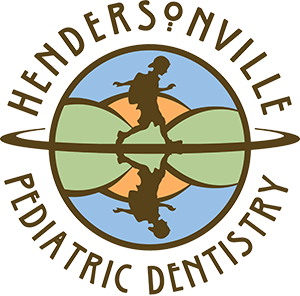
Pediatric Dentistry
-
The American Academy of Pediatric Dentistry, American Dental Association and American Academy of Pediatrics all agree that children should begin to visit a pediatric dentist no later than their first birthday. Although this might seem young, it is extremely important that newly erupted primary teeth receive proper dental care from the very beginning.
-
Initial appointments are primarily used to help educate parents on proper cleaning methods, to discuss nutritional information, to create a plan in case of future dental trauma, and simply to begin familiarizing children with the dentist and dental office.
-
It’s been shown that non-threatening visits at an early age also help to build your child’s confidence, provide a foundation for hygiene awareness and begin to create a trusting relationship between your child and our dental team.
Dental Emergency Services
BABY TEETH
If you notice that your child has a permanent tooth coming in and the baby tooth is not loose or has not exfoliated, don’t worry. We suggest that you wiggle that baby tooth over the next week or two. Offer lots of hard crunchy foods to help easy that baby tooth out. If it fails to come out or tightens back up call the office for a scheduled appointment.
PERMANENT TEETH
If your child knocks out their permanent tooth try to reinsert it. Your child can keep the tooth in place until treatment by biting down on a wet piece of clean gauze or towel. If that is not possible, put the tooth in a glass of milk, saline solution, or saliva, and take your child and the glass immediately to our children’s dentistry office or an emergency treatment facility. Call our office immediately (828) 696-2227
If your child sustains a blow to head or jaw, loses consciousness, has blurred vision, dizziness or vomiting please take your child to the nearest emergency room or call 911. Otherwise, please call our office at any time; we always have a doctor on call.
BABY TEETH
If your child loses a baby tooth from an injury, try to remain calm. DO NOT TRY TO RE-IMPLANT IT. Call our emergency number and we will make sure to see you as soon as necessary.
PERMANENT TOOTH IS CHIPPED
Try to find the fractured piece, as we may be able to bond it back to the tooth, and call our office for assistance.
BABY TEETH
For a broken tooth, rinse your child’s mouth out with warm water to clean out any debris or foreign matter. Use a cold compress on the child’s cheek or gum near the affected area to keep any swelling down. Call our office for a scheduled appointment.
FAQs
WHAT IF MY CHILD CRIES DURING HER DENTAL VISIT?
It is important to remember the difference between a real fear and an imagined one. As each of us steps into new environments, it is easy to imagine the worst happening to us. If we are logical, we can manage to conquer that fear. That’s what we are helping children to do – conquer their anxiety and imagined fears and become adept in a new environment.
Because we treat children with patience, the end result is a sense of accomplishment. Also, frustration can be a first step toward that goal. Frustration usually comes in the form of crying. Our years of experience tell us that this is a temporary phase that will pass when your child begins to feel in control and confident about being at the dentist.
WHAT IF MY CHILD IS TRULY AFRAID?
Dental visits don’t create fear, they overcome it. Training, by definition, is a discipline of drills and patterns designed to develop or expand a skill. It makes sense to protect your child from possible hazards. However, exposure to new experiences is essential to growth. Our professional pediatric dentistry team will approach your child’s fears with sensitivity and confidence. Soon, fears vanish. Trust blossoms in the bond between dental professional and child. Happy Visits may be one way that your child can receive the additional time and instruction that they need to train and practice for an up-coming treatment appointment. Together you and your child’s dentist will develop a plan to suit your child’s needs.
HOW SAFE ARE DENTAL X-RAYS?
There is very little risk in dental X-rays. Pediatric dentists are especially careful to limit the amount of radiation to which children are exposed. Lead aprons and high-speed film are used to ensure safety and minimize the amount of radiation.
